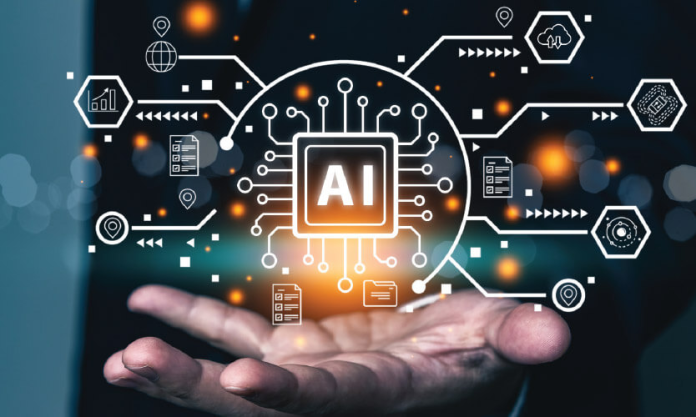
Africa’s largest mobile operator is sounding the alarm: without urgent investment in artificial intelligence infrastructure and skills, the continent risks falling irreversibly behind in the global digital economy, potentially creating what MTN Group’s CEO calls a “digital underclass.”
Ralph Mupita delivered his stark warning at the Kgalema Motlanthe Foundation’s Inclusive Growth Forum over the weekend, telling attendees that Africa must be “obsessed and paranoid” about not being left behind. It’s language that suggests he’s seen the gap widening and doesn’t like what he’s observing.
The forum, held in the Drakensberg, emphasized harnessing artificial intelligence and leveraging the continent’s youth dividend, themes that have become increasingly urgent as AI reshapes global economic hierarchies. But Mupita’s message went beyond typical conference optimism. He outlined six specific priorities that Africa must address immediately, and the financial figures he cited are sobering.
First up is electricity. You can’t run data centers or power AI infrastructure without abundant energy supplies, and Africa’s current capacity isn’t close to what’s needed. Mupita cited International Energy Agency projections indicating that achieving Africa’s energy and climate goals by 2030 would require over $200 billion in annual investments. Meanwhile, the International Monetary Fund estimates that global data centers already consume as much energy as some of the world’s largest economies, with demand expected to triple by 2030.
Then there’s the infrastructure deficit. With less than 2% of global data center capacity, Africa faces a massive scaling challenge that extends beyond fiber optic cables and subsea connections. The International Telecommunication Union estimates Africa needs $96 billion by 2030 just to bridge its digital infrastructure gap. That’s not maintenance money or incremental improvement funding. That’s catch-up investment on a continental scale.
But perhaps the most compelling argument Mupita made concerns language and cultural representation in AI models. Africa has over 2,000 distinct languages, yet fewer than 2% are currently supported by mainstream AI systems. If Africans can only interact with AI in English, French, or Portuguese, they’re essentially accessing technology through a cultural and linguistic filter that wasn’t designed for them.
Mupita highlighted Nigeria’s Atlas for Languages & AI at Scale, an open-source multilingual large language model designed to understand Nigeria’s linguistic diversity and support the creation of African datasets. It’s the kind of initiative that could make AI genuinely useful for the 1.5 billion people who live on the continent, rather than just a tool that works well in Lagos if you speak perfect English.
He first raised these concerns during the United Nations General Assembly in New York last month, where MTN backed Nigeria’s call for funding research and data collection on African languages. The fact that he’s repeating and expanding on these themes suggests mounting urgency.
The skills development challenge is equally pressing. By 2030, an estimated 230 million digital jobs are expected to emerge in sub-Saharan Africa. That’s an enormous opportunity, given that Africa’s youth will make up the world’s largest workforce by 2050. But those jobs won’t materialize automatically, and they certainly won’t go to people who lack the training to compete.
“We must ensure that new jobs and augmented jobs are greater than the jobs lost, particularly with the youth dividend that Africa will have,” Mupita said. It’s the classic disruption paradox: technology creates opportunities while simultaneously destroying established employment pathways. The question is whether Africa can train people quickly enough to capture the upside.
Mupita described AI as a transformative tool for tackling Africa’s pressing challenges, arguing that the technology’s greatest value would come from combining traditional AI and generative AI in sectors like healthcare, education, and agriculture. These aren’t abstract use cases. They’re areas where AI could genuinely improve outcomes if properly deployed with locally relevant data and cultural context.
His conclusion was a call for immediate collaborative action. Governments, the private sector, and civil society must partner on policy, data governance, and skills development without delay. “To give African AI initiatives scale and joint success,” he emphasized, stakeholders need to move beyond statements of intent to actual resource allocation and implementation.
The message reflects growing consensus among African leaders that the continent’s participation in the AI revolution depends on strategic investment and collaboration rather than passive consumption of technologies developed elsewhere. But consensus doesn’t equal action, and the timeline Mupita is describing leaves little room for the kind of bureaucratic delays that have hampered previous digital initiatives.
What makes his warning particularly credible is that MTN has actual operations across 19 African markets. Mupita isn’t speaking theoretically about digital divides. He’s running a company that sees daily evidence of connectivity gaps, infrastructure limitations, and the consequences when technology development happens elsewhere.
Whether Africa can mobilize the hundreds of billions of dollars needed for energy infrastructure, data centers, and skills training remains an open question. What’s clear from Mupita’s increasingly urgent messaging is that the window for action is narrowing, and the cost of falling behind extends far beyond missed economic opportunities.
